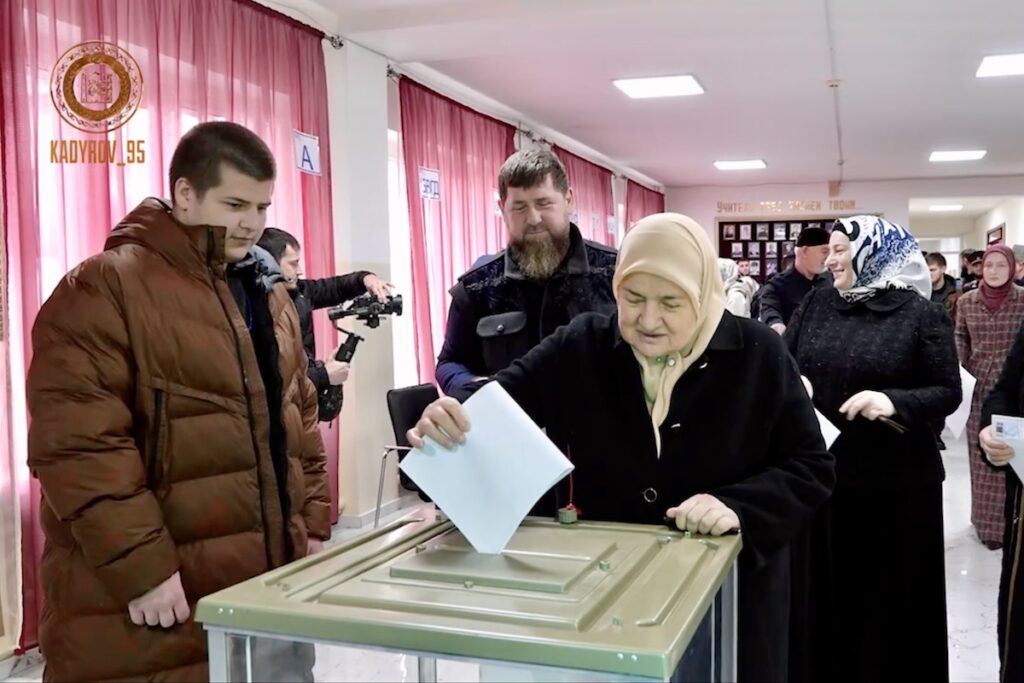The United Russia party of President Vladimir Putin has won parliamentary majorities in two North Caucasus republics following elections which saw all current regional MPs keep their seats.
Voting began on 6 September for local elections throughout Russia, including in several parts of the North Caucasus.
These included the election of MPs to the parliaments of Kabarda-Balkaria and Karachay-Cherkessia.
Separately, the heads of Kabarda-Balkaria and Ingushetia were elected by the local parliaments there.
In Chechnya, Daghestan, and North Ossetia, elections to several smaller local councils were held.
Incumbent MPs won in all the regional elections, while the United Russia party won the overwhelming majority of seats in the parliamentary elections.
In Kabarda-Balkaria, 50 of 70 seats in the local parliament were won by United Russia. The remaining seats were taken by the Communist Party (9 seats), A Just Russia (7 seats), the LDPR (2 seats), and The Greens (2 seats). Official figures put voter turnout at 74%.
The results in neighbouring Karachay-Cherkessia were similar. Official results gave United Russia 65% of the vote, winning 34 of 50 seats. This was followed by the Communist Party, A Just Russia, the LDPR, and the Civil Platform.
In the votes for the heads of Ingushetia and Kabarda-Balkaria, the incumbents Makhmud-Ali Kalimatov and Kazbek Kokov, who both enjoyed the support of United Russia, were easily reelected by their local parliaments.
In both regions, the current heads faced two competitors also nominated by President Putin.
According to a report by Golos, the only election watchdog still active in Russia that is independent of the Russian government, there was ‘not a single competitive campaign for the regional governor elections in 2024’.
The report also noted that the number of people willing to run for office had been steadily declining. They said that candidates who could gain support avoided doing so in order to avoid repercussions from the government.
In North Ossetia, eight election campaigns were held, the largest of which were to the local assemblies in Vladikavkaz, where United Russia won 23 of 32 seats, and in Beslan, where they won 14 of 20.
In Daghestan and Chechnya, elections to several district and rural councils were held.




 10 September 2024
10 September 2024



